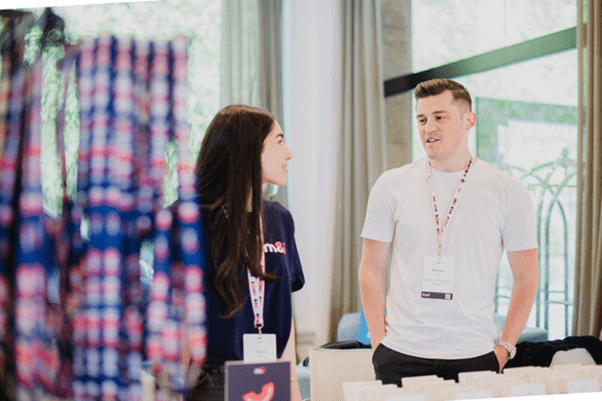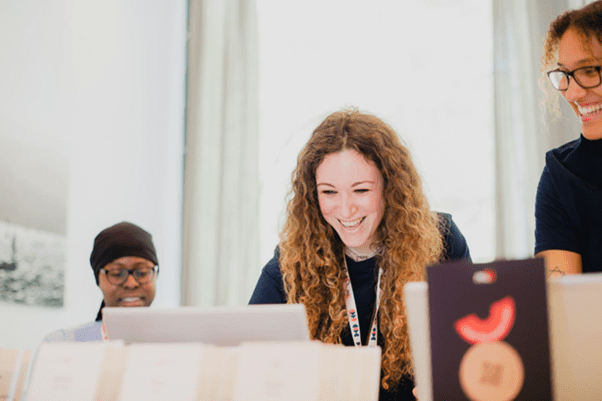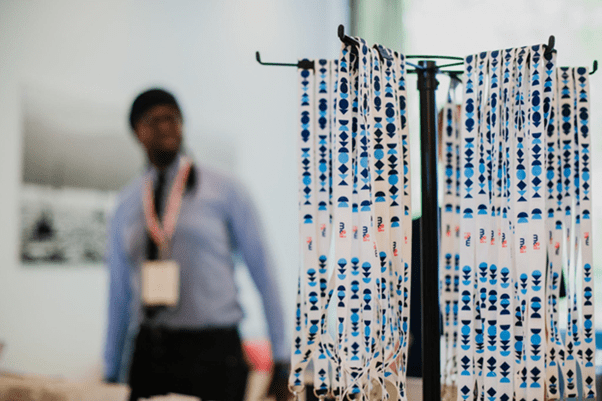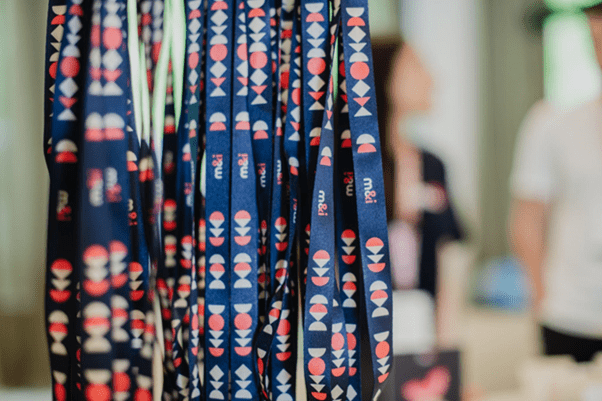The MICE industry plays a pivotal role in global event planning. It brings together professionals from various sectors to share knowledge, foster business relationships, and drive economic growth. As the world grapples with environmental challenges, sustainability in MICE has emerged as a critical aspect of event planning.
This article delves into the significance of sustainable event planning, offering key strategies and tips for creating successful and eco-friendly events within the MICE industry. Besides portraying benefits of sustainability in MICE it also highlights how event industry sustainability initiatives have led to a much greener future. From understanding the principles of sustainability to incorporating green practices throughout the event lifecycle, you will find actionable insights to make your events more sustainable and memorable.
Explore how choosing the right venue, engaging attendees with innovative activities, and opting for sustainable catering can transform your events. Additionally, it’s important to consider logistical factors like airport transfer booking to ensure a seamless experience while minimising environmental impact.

Sustainability has become a crucial aspect of event planning. It involves considering both the environment and the community when organising an event, with the goal of minimising negative impacts and promoting positive change.
1. Environmental considerations
One of the main reasons why environmentally sustainable events are important is its positive impact on the environment. By implementing eco-friendly practices, events can:
2. Social considerations
Sustainability also encompasses social aspects, making events more inclusive and beneficial for everyone involved. Here’s how:
By adopting these sustainable event practices, event planners can:
By leading sustainability in events, not only the environment is benefitted but it also enhances the social impact of your events.
Cities like The Hague have taken significant steps towards organising sustainable MICE events. Their innovative approaches serve as inspiration for other cities looking to make their events more sustainable.
In fact, destinations such as Ibiza are also embracing sustainability in event planning, showcasing how even traditionally known party destinations can adopt eco-friendly practices.

Green event planning integrates various environmentally and socially responsible practices into the organisation of events. The aim is to reduce the negative impact on the environment while promoting positive social outcomes. This involves everything from selecting eco-friendly venues to using digital communication tools for reducing paper waste. Benefits of embracing environmentally sustainable events include:
1. Long-term business growth
Adopting sustainable practices can lead to significant cost savings. Energy-efficient venues, for instance, often have lower operational costs, which can translate into reduced venue hire fees. Additionally, sustainable events can attract sponsorships from environmentally conscious brands and organisations eager to associate themselves with green initiatives.
2. Positive community impact
Creating sustainable events fosters goodwill within communities. By sourcing local products and services, you support local businesses and economies. Attendees are more likely to engage positively with events that reflect their values concerning environmental stewardship and social responsibility.
3. Improved brand image
Companies known for their commitment to sustainability often enjoy a stronger brand image. This can be particularly advantageous within the MICE industry, where reputation plays a crucial role in attracting high-profile clients and attendees.
4. Enhanced attendee experience
Sustainable practices frequently lead to a better attendee experience. For example, opting for plant-based catering not only reduces carbon footprints but also introduces attendees to nutritious and delicious meal options they may not have considered before.
5. Regulatory compliance
Increasingly, governments are implementing regulations aimed at reducing environmental impacts. By embracing sustainability early on, your events will be better positioned to comply with existing and future regulations, avoiding potential fines or operational disruptions.

The aim is to reduce the negative impact on the environment while promoting positive social outcomes. This involves everything from selecting eco-friendly venues to using digital communication tools for reducing paper waste.”
Event planners play a pivotal role in leading sustainability in events by making informed decisions that prioritise eco-friendly options. From choosing venues with green certifications to advocating for digital over printed materials, planners set the tone for sustainability throughout the event lifecycle.
2. Venues
Venues can significantly contribute by implementing green building standards such as LEED certification. These facilities often feature energy-efficient lighting, water-saving fixtures, and waste reduction programs that collectively minimise the event’s environmental footprint.
3. Suppliers
Suppliers who offer sustainable products and services—such as biodegradable utensils or recycled promotional materials—enable event planners to incorporate eco-friendly choices seamlessly into their planning process.
4. Collaborative initiatives
Collaboration among stakeholders amplifies sustainability efforts and ensures elements throughout the process have been considered.
5. Cultural experiences and sustainable destinations
Promoting destinations sustainably while providing unique cultural experiences is another aspect of driving sustainability in the MICE industry. Initiatives like Discover Georgia highlight how destinations can be promoted sustainably while leaving lasting impressions on attendees.
By leveraging these principles, professionals within the MICE industry not only create memorable experiences but also contribute significantly towards a sustainable future.

Selecting a venue is one of the most critical decisions in event planning, and it’s an excellent opportunity to incorporate sustainable practices in MICE event management. To ensure your event is environmentally conscious, consider the following criteria when choosing a venue:
1. Green certifications
Look for venues that have been certified by recognised sustainability standards such as LEED (Leadership in Energy and Environmental Design) or BREEAM (Building Research Establishment Environmental Assessment Method). These certifications indicate that the venue meets high environmental performance standards.
2. Energy-efficient facilities
Opt for venues that utilise energy-efficient lighting, heating, and cooling systems. Venues with renewable energy sources or those that have implemented smart building technologies can significantly reduce the event’s carbon footprint.
3. Waste management systems
Prioritise venues with robust waste management practices, including recycling programs and composting facilities. Venues with a track record of reducing single-use plastics and promoting zero-waste events should be high on your list.
4. Water conservation measures
Consider venues that have water-saving fixtures and irrigation systems. Features like low-flow toilets, faucets, and drought-resistant landscaping can help conserve water during your event.
5. Accessibility to public transport
Choose venues that are easily accessible by public transportation. Encouraging attendees to use buses, trains, or other public transit options can drastically cut down on emissions associated with private vehicle use.
6. Local sourcing policies
Some venues commit to sourcing food and materials locally. This practice not only supports the local economy but also reduces transportation emissions associated with long-distance shipping.
For instance, if you’re planning an event in The Hague, as M&I did, you’ll find that it’s well-known for its commitment to sustainability, offering numerous venues with green certifications and energy-efficient facilities.
By adhering to these criteria, you ensure your venue choice actively contributes to an environmentally conscious event production. These efforts can create a positive ripple effect across all aspects of your MICE event.

Sustainable practices in MICE event management demand innovative approaches to engage attendees while promoting environmental consciousness. Creative activity design strategies can make a significant difference:
1. Interactive workshops
Host sessions that teach attendees about eco-friendly practices, such as recycling, upcycling, and energy conservation. Hands-on workshops can demonstrate the practical application of these concepts.
2. Eco-friendly challenges
Implement team-building activities focused on sustainability. Examples include zero-waste challenges or scavenger hunts with an environmental theme.
3. Green exhibits
Showcase vendors and products that prioritise sustainability. This can highlight innovations in the industry and inspire attendees to adopt similar practices.
4. Sustainable giveaways
Offer eco-friendly swag, such as reusable water bottles, bamboo utensils, or seed paper. These items not only reduce waste but also serve as lasting reminders of the event’s sustainable focus.
5. Digital solutions
Reduce paper waste by utilising event apps for schedules, maps, and networking. Encourage digital note-taking and provide downloadable resources instead of printed handouts.
6. Post-event initiatives
Engage attendees in post-event sustainability efforts. This could include planting trees to offset carbon emissions from travel or participating in local clean-up projects.
Integrating environmentally conscious event production throughout the lifecycle ensures that every stage — from planning to post-event evaluation — reflects a commitment to sustainability. By weaving these elements into your events, you create memorable experiences that leave a positive impact on both participants and the environment.
To explore more innovative sustainable practices and learn about our concept behind M&I Toolkit.

Incorporating sustainable practices in MICE event management extends to every aspect of the event, including catering. Selecting food and beverage options that align with environmentally conscious event production is essential for reducing the overall carbon footprint. Some ways M&I do this include:
Sustainable food choices are an integral part of creating eco-friendly events within the MICE industry. By integrating these considerations into your planning process, you contribute to a more sustainable future.

The Greenbuild International Conference and Expo exemplifies best practices for sustainable MICE events. This annual event focuses on green building and sustainable architecture, implementing numerous eco-friendly strategies such as:
These measures have successfully reduced the environmental footprint of the conference, setting a high standard within the industry.
IMEX Frankfurt is another standout example, showcasing how large-scale events can incorporate sustainability. Key initiatives include:
These practices not only enhance the event’s sustainability but also foster a positive community impact.
Successful sustainable events often result from collaborative efforts among various stakeholders. We at M&I effectively partner with venues, suppliers, and other industry professionals to deliver eco-friendly experiences that both attendees and the environment appreciate.
By adopting these best practices, you can contribute to a greener future for the MICE industry while delivering memorable and impactful events.

The future of sustainable event planning in MICE presents both challenges and opportunities. As the industry continues to evolve, addressing these aspects is crucial for achieving long-term sustainability goals. The challenges ahead include:
Navigating these challenges and leveraging these opportunities will shape the future of sustainable event planning in the MICE industry.
In conclusion, event planners have a crucial role in driving sustainability efforts within the MICE industry. By using eco-friendly practices, you can create memorable and successful events while also making a positive impact on our environment. The event industry sustainability initiatives have significantly reduced waste and promoted eco-friendly practices.
Your commitment to sustainability can lead the way to a greener future for the MICE industry. Explore our calendar below to join us at one of our events in 2025.
14-16 April 2026 | Abu Dhabi
American buyers
24 - 28 Feb | Austria
Foster new cross-continental business relationships
UK & European buyers
17 - 20 Jun 2026 | Sweden
Grow your MICE network in Sweden’s premier destination
Open your property up to a new range of events and opportunities by taking advantage of an online assessment created by our event partner, Healthcare Venues, which will determine if your venue is capable of hosting healthcare meetings and events.
If your property passes, you’ll receive Healthcare Venue certification, verifying you to our buyer network as a specialist healthcare venue.
Tim Chudley
Managing Director, Sundial Group